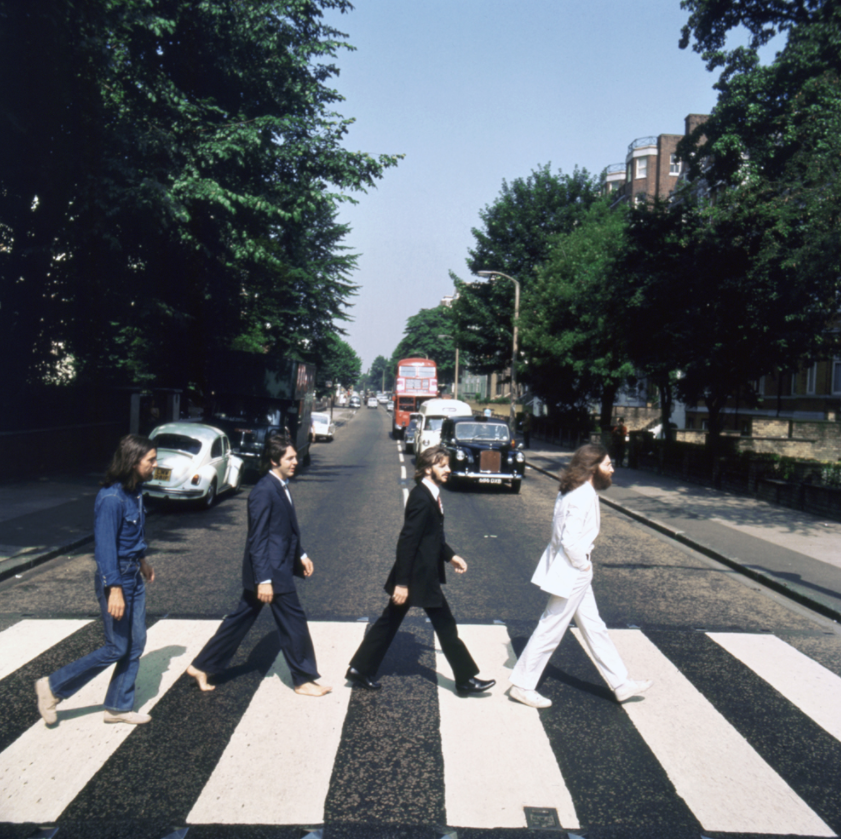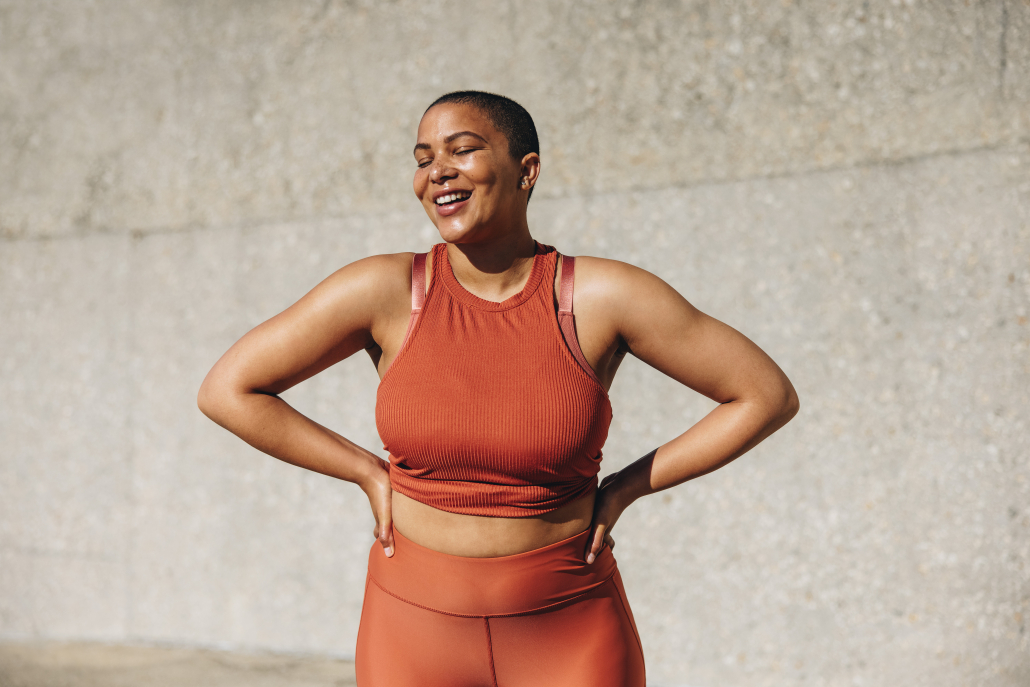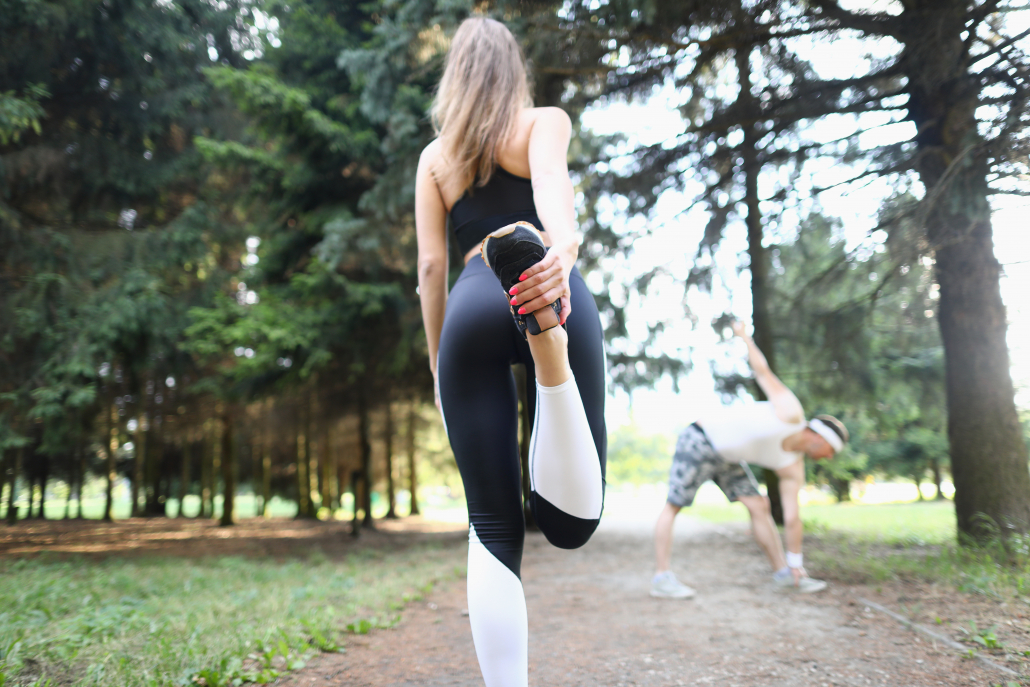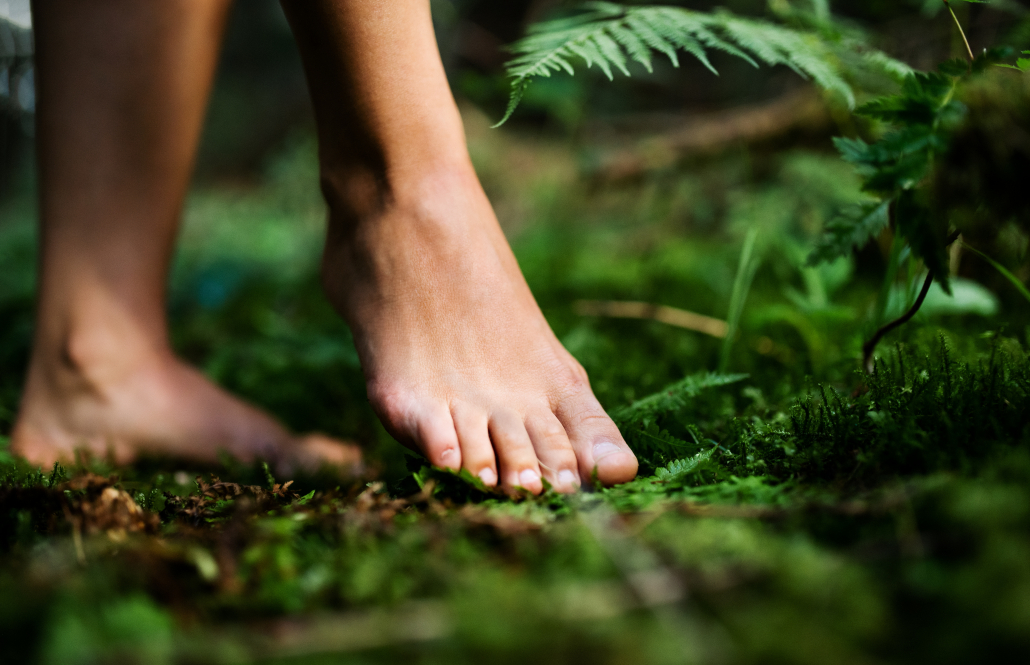We include products in articles we think are useful for our readers. If you buy products or services through links on our website, we may earn a small commission.
12 Benefits of Walking

Table of Contents
- The Benefits of Walking
- Is Intense Physical Activity Overrated?
- 1. Walking Improves Cardiac Health
- 2. Walking Improves Circulation
- 3. Walking Helps Lower Blood Sugar
- 4. Walking Benfits Digestion
- 5. Walking Burns Calories
- 6. Walking Boosts Immunity
- 7. Walking Alleviates Joint Pain
- 8. Walking Benefits Bone Strength
- 9. Walking Improves Sleep
- 10. Walking Corrects Posture
- 11. Walking Promotes Mental Health
- 12. Walking Boosts Creativity
- Benefits of Walking: The Takeaway
Walking offers many benefits. It’s one of the best ways to extend your healthspan, achieve your ideal body weight, and reduce your stress levels. Yet it’s so easy even a toddler could do it.
Walking is the superfood of exercise. It offers physical and mental benefits to people of all ages and all fitness levels. In this article, we’ll explore 12 ways walking can transform your health and prolong your life.
The Benefits of Walking
The health benefits of walking are numerous. Humans were simply made to move — and walking provides us all the benefits of movement in a convenient, low-stress, risk-free activity. Walking is easy to get started with, and it’s accessible for people of virtually all fitness levels.
But just because we can all do it, doesn’t mean it’s not an incredibly powerful form of fitness.
A consistent walking program can tangibly improve almost every measurable metric of health. Walking can reduce your stress levels, boost your thyroid, ramp up your metabolism, and much, much more.
Is Intense Physical Activity Overrated?
Much like the ways mainstream views of healthy eating (low-fat diet nonsense) fail to consider what humans evolved to eat, mainstream fitness routines fail because they neglect how humans evolved to move.
Humans were built to traverse the land at a steady, slow pace, often in search of food or shelter. We weren’t designed to spend hours teetering on the edge of our lactate thresholds, as seen with many popular ‘aerobic’ workouts.
Ancient people spent a lot of time walking and just a little time moving really fast, without much in-between. One of the last hunter-gatherer groups on earth, Africa’s Hadza tribe, walks between 7 and 12 miles per day.
According to Daniel Lieberman, a top evolutionary scientist at Harvard University, hunter-gatherers across the globe walk an average of 6 miles a day.

A low carb diet and plenty of walking keep the Hadza lean & healthy. Image from medicalxpress.com
Overtraining
Many people make intentional movement a part of their daily routines, but often this comes in the form of intensive workouts without proper rest and nutrition. Studies looking at intensive modern training regimens show that when it comes to physical activity, the whole “no pain, no gain” mantra can often just lead to more pain.
Overtraining has been shown to suppress the immune system, damage muscles, deteriorate aerobic, ventilatory, and cardiac efficiency, cause depression.
Experiencing better overall health does not require brutal workout routines. It’s as easy as going for a daily walk! Here are 12 of walking’s best health benefits.
1. Walking Improves Cardiac Health
Research shows that daily 30 minute walks can reduce your risk of developing heart disease by almost 20 percent. Longer walks may lead to even more pronounced benefits.
And don’t think you have to go fast, either. A robust 2013 study of 33,000 walkers and 15,000 runners found that both activities led to similar reductions in the major factors for heart disease. The study emphasized that light aerobic exercises like brisk walking can up your cardiovascular health by increasing your heart’s strength and efficiency.
2. Walking Improves Circulation
Circulation is one of those words that’s been overused enough to have lost its meaning. What circulation actually refers to is your body’s ability to stay fully oxygenated, transport nutrients, and remove waste products.
Poor circulation is associated with many of the diseases of aging. In a textbook example of the vicious cycle of aging and disease, poor circulation leads to biological damage, which in turn leads to even poorer circulation. Kidney disease and other types of organ failure can result.
Good circulation, on the other hand, allows your body to maintain cellular health and quickly remove toxins.
There is evidence that optimal circulation can be regained by consistent walking. Walking strengthens the circulatory systems of your lower legs, allowing their muscles and veins to push blood back up to the heart.
3. Walking Helps Lower Blood Sugar
Walking can also lower your blood sugar. Studies have shown that people who take brisk walks experience lower blood sugar, blood pressure, and postprandial triglycerides.
Timing matters, too. Walking right after a meal can boost your body’s insulin sensitivity, which makes it one of the best ways to help your body process the fuel you get from eating.
Many traditional cultures attributed their longevity to the practice of walking after meals. Taking a 10-minute walk after each meal may be especially helpful to people with type 2 diabetes.
Consistent walking can also benefit your blood pressure. For proof, look no further than the Hadza tribe we mentioned earlier.
“[The Hadza] have very low levels of hypertension,” anthropologist David Raichlen explained to News Arizona. “In the U.S., the majority of our population over the age of 60 has hypertension. In the Hadza, it’s 20 to 25 percent, and in terms of blood lipid levels, there’s virtually no evidence that the Hadza people have any kind of blood lipid levels that would put them at risk for cardiovascular disease.”
4. Walking Benfits Digestion
Another benefit of walking right after meals is improved digestion.
Walking activates deep abdominal muscles that help facilitate the digestive process. Walking also stimulates the production of vasoactive intestinal peptide, a peptide hormone that’s produced by the gut during exercise.
This hormone helps regulate gut motility — the movement of stuff in our guts as we digest food — and glycemic control, meaning blood sugar levels are steady so our energy doesn’t spike and drop, and our moods don’t swing.
A regular walking routine can also keep your bowel movements regular. Walking even improves digestion in people with IBS. The same can’t be said of many other forms of exercise.
5. Walking Burns Calories
The process of getting your heart rate up almost always leads to increased calorie burn.
Walking, however, is one of the most enjoyable ways to burn more calories. It’s an exercise that doesn’t really feel like exercise; it’s cardio that doesn’t really feel like cardio.
And despite all the enjoyment involved, walking might burn many more calories than you think. Walking in a mentally stimulating environment (like along a winding riverbed or through a bustling city) may burn as many calories as more intense exercise. It turns out that the active brain is an energy hog that can consume just as many calories as an active body.

The Beatles were onto something. Image from thebeatles.com
As significant as walking’s sheer calorie burn is where these calories come from. Consistent walking can shift your metabolism away from relying on carbs for fuel and towards a cleaner-burning fat-based metabolism.
All this makes walking perfect for weight loss. Many people settle in at a lower weight when they walk consistently. Combine daily walks with a high fat, low-carb or keto diet for even better results.
6. Walking Boosts Immunity
We all know that sitting on the couch all day isn’t good for your immune system.
But neither is running marathons–recall what we said earlier about overtraining.
Only low-to-moderate intensity exercises, like walking, seem to hit that goldilocks zone and enable the immune system to fire on all cylinders. One study looking at 1,000 adults found that those who walked 30-45 minutes a day had 43% fewer sick days during flu season.
7. Walking Alleviates Joint Pain
This might sound counterintuitive, but the solution for joint pain isn’t inactivity.
The solution is actually low-impact activity that provides just enough of a challenge — like walking. A 2019 study of older adults with joint pain found that those who stuck with a modest walking routine (only an hour a week) had better mobility than those who did not.
Walking may benefit your joints in an indirect way, too: if it helps you lose some extra weight, your joints will be far less burdened.
8. Walking Benefits Bone Strength
Walking also hits the sweet spot when it comes to impact levels. The low impact of walking avoids triggering inflammation or injuries. Yet walking is high impact enough to strengthen your bones.
It’s no surprise, then, that walking has been correlated with reduced risks of hip fractures in the elderly. Data from the Nurses’ Health Study shows that both higher volumes of walking and faster paces are associated with the greatest risk reductions.
9. Walking Improves Sleep
There’s the saying that the harder the day’s work the sweeter the night’s sleep. But these days most of us spend most of our work days sitting or standing still at a desk.
Making walks part of your daily routine can give you the physical activity you need to sleep better. A 2019 study found that women who do light-to-moderate physical activity sleep better at night than those who are more sedentary.
It’s thought that walking — especially walking in the great outdoors, in full view of the sun — leads to a stronger circadian rhythm. When your body’s circadian rhythm is in balance, it can help you stay sleepy at night and energized during the day.
10. Walking Corrects Posture
They say that sitting is the new smoking, but there’s good news: regular walks could help stretch out muscles and ligaments that get tight from sitting all day.
Walking either barefoot or with minimalist shoes may be even better, as it strengthens your ankles and feet against ever-changing loads. Many movement experts swear by the practice.
Walking on uneven surfaces (trails, beaches, et cetera) is also a great idea.
11. Walking Promotes Mental Health
Walking isn’t just good for your body. It’s also amazing for your mind.
Going on regular walks helps your body produce feel-good neurotransmitters, including endorphins and endocannabinoids. Studies show that these natural chemicals can shift your perspective and reduce the risk of depression.
Walking’s mental health benefits are even more pronounced if your walking route gets you out in nature. The Japenese have been doing this for eons; they call it ‘forest bathing.’ Try it yourself by ditching the treadmill and hitting up a local trail.

12. Walking Boosts Creativity
Numerous studies have shown that walking can increase creative output. One Stanford University study found that walking boosted divergent thinking — basically creativity + openness — by as much as 60 percent.
In 2006, Canadian researchers discovered why: exercise stimulates neurogenesis (the growth of new cells) in parts of the brain responsible for creativity and memory.
Another study found that just a single walking session was enough to improve vigor and mood, which tells us that this type of creativity boost could happen fairly fast.
Plenty of anecdotal evidence backs up the connection between walking and creativity, too. Many of history’s best and brightest minds loved walking. Albert Einstein regarded his daily walk as sacred; Nicola Tesla made sure to walk 10 miles every day.
Benefits of Walking: The Takeaway
Walking is a form of exercise that offers maximum benefits and minimal downsides. Most of us have been walking since we were toddlers, so it’s easy to incorporate into your daily life without any learning curve.
We recommend between 45 and 75 minutes of brisk walking each day if you want to reap the greatest physical and mental health benefits. That’s about 5,000-10.000 steps per day, which you can easily track with a pedometer or your smartphone.
And walking is one exercise where you don’t have to worry about doing it too much. Even huge volumes of walking (think an Appalachian trail hike) are shown to lower stress levels and lead to improved health metrics.
Walking is one of the healthiest, most holistic forms of exercise you can do. We hope to see you out there.

















